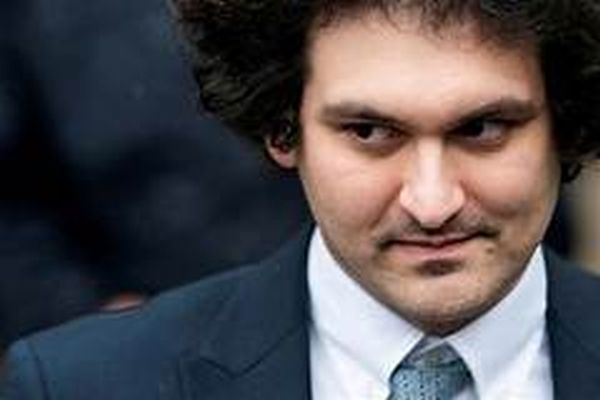Superfluous Kings for Messengers
From The New CriterionAt least let us hear no more about the “cynicism” of the media. Miss Jade Goody, the British reality-TV superstar of whose approaching demise I wrote last month in this space, has now died; a nation has mourned her passing; and in what David Aaronovitch of The Times of London rather hyperbolically calls “the war between Jade and the jaded,” I find myself unhappily classed among the latter group. “Cynicism,” claims Mr Aaronovitch, “comes as easily to a journalist as hyperbole — sometimes even in the same article. There is a small media industry to build a Goody-type phenomenon up and a slightly smaller one to lament that such a vulgarity exists at all.” I would have thought that we lamenters form a much smaller “industry,” but let that pass. It’s true enough that the lamentations can become, willy-nilly, part of the phenomenal build-up he mentions on the principle — which is perhaps more true, as Miss Goody’s own career demonstrated, for reality TV stars than anyone else — that all publicity is good publicity. It’s also true that the emotion generated by TV-“reality” and its coverage by the other media is itself no less real for that.
But it seems to me inarguable that this emotion is not the same as the emotion we would feel for the death of someone we knew in real life, let alone a loved one, at least not as either love or grief used to be understood. Mr Aaronovitch, on his way to announcing that the real lesson of the Goody-phenomenon was that “death is back” — maybe “death is the new comedy” would do a better job of mimicking the language of media hyperbole and fashion-consciousness — too easily brushes aside the importance of what he calls the “cult of the celebrity.” The popular wallow in public grief, whose most salient precedent was the death of Princess Diana in 1997 and whose opposite, in Mr Aaronovitch’s eyes anyway, was the stoicism of “the veiled Jackie Kennedy at her husband’s graveside,” is inseparable both from the fame of the person who is mourned and from the communal nature of the grieving, both of which distinguish it from the emotion we feel (or don’t feel) about other kinds of death.
 |
And it is different again when you add the element of celebrity. The death of President Kennedy produced the kind of public emotion it did not only because he was famous and because huge numbers of his fellow citizens felt involved in it — just as they do in the death of some celebrities — but because, precisely, the late president was not a celebrity. He was something bigger than a celebrity. For many of those now alive can remember when there was something bigger. Like the fall of a tragic hero, Kennedy’s murder had real, identifiable consequences for the whole nation, indeed the whole world. To put it brutally, his death mattered in a way that neither Jade Goody’s nor Princess Diana’s did or ever could. For their deaths to be treated with the same respect and honor formerly due only to the “great” men on whose lives and deeds the fate of nations and empires once turned seems to me and, I suspect, to many of my fellow jaded cynics and lamenters of the Jade cult, to be an indisputable example of political, social and cultural decline.
On one of the nine cars in the televised procession that accompanied Miss Goody’s body on its last, 23-mile journey from her birthplace among the insalubrious former London docklands of Rotherhithe and Bermondsey to St John the Baptist Church in more upscale Buckhurst Hill, Essex, someone had spelled out in flowers one of Jade’s now-famous sayings — borrowed, appropriately enough from an advertisement for the yeast extract, Marmite — “You either love me or hate me.” This wasn’t true. Neither grief nor love nor hate is the same when paid to a celebrity. It would be truer to say that we either love or hate the idea of her, since that is all we know or can know of her through the media. Therefore, whether we love or hate her idea is inevitably connected with a lot of other ideas we have about the world. Women, for example, seem to have made up a disproportionate number of Miss Goody’s unfamiliar mourners because they saw in her “narrative” — as they had before in that of Princess Diana — a reflection and a dramatization of their sense of their own victimization by men and by a society where women are not valued at their true worth.
All this should give us pause as we enter upon the new era of the celebrity presidency which began last January 20th and which surely owes a lot to the popular sense of disappointment with the previous president’s pretensions to the kind of old-fashioned greatness that has not been seen in the White House since — well, since JFK. I myself would argue that Lyndon Johnson, Richard Nixon and Ronald Reagan (at least) were all great men in this now-anachronistic sense, but that is still a controversial and, to some extent, a partisan point of view. If we didn’t know it before, George W. Bush’s presidency has shown that even leading his country in war does not confer moral stature on a president anymore. If he is nothing but the blunderer which the media seem finally to have settled on seeing President Bush as — after flirting with the left’s characterization of him as a kind of super-villain — he is in effect just one of the war’s many victims rather than its author. Neither for good nor ill, therefore, can he be seen as the master of events that kings and presidents were once supposed to be.
Besides, true greatness compels the assent of friend and foe alike in an appreciation of the consequence and importance of a unique life, and the politicization of historiography in the generation since Kennedy’s death suggests that no president for the foreseeable future will ever again possess it. Indeed, the very idea of greatness is politically suspect, to say the least, and incompatible with the egalitarian principles on which, increasingly, we seek to build our political and diplomatic institutions. That celebrity is so much more convenient for these principles cannot be merely coincidental with the advent of the celebrity presidency. President Obama’s European trip at the end of March and the beginning of April was so prominently marked as exemplifying his more “humble” approach to America’s role on the world stage because it was intended as a disavowal of greatness — both his own and his country’s. That’s why he excoriated American “arrogance” in the past before a foreign audience as if the American past were nothing to do with himself as an American.
Like so many of his fellow Democrats, he had grown accustomed over the last eight years to dissociating himself from the Bush administration’s foreign policy. Not for nothing had one of the rallying cries of the anti-war movement been “Not in My Name,” though of course it was precisely because the war was being fought in their name that they were so furious. As a result, he must have come to think America was only really America once he had been put in charge of it. This was his equivalent of his wife’s curiously solipsistic statement on the campaign trail that she had never been proud of her country until it showed itself willing to make her husband its president. He himself could not have been quite unaware of the comical absurdity of the President of the United States’s agreeing with the characteristically undiplomatic charge by Silvio Berlusconi, the Italian prime minister, that America had somehow caused the world economic contraction.
“It is true, as my Italian friend has said, that the crisis began in the U.S. I take responsibility, even if I wasn’t even president at the time,” he was reported to have said. Yet nobody seems to have got the joke. The point of pretending to take responsibility was not to take responsibility, which would not have been deserved even if he had been president at the time, but, first, to deflect it onto his predecessor — who has frequently been alluded to elsewhere under the formula of “the policies that got us into this mess” — and, second, to remind us again that America and he, America’s new leader, were distinct moral entities and should not be confused one with another, at least not unless it might suit him for whatever reason to be seen as shouldering his country’s debts — literal or metaphorical, real or imagined. America’s imagined guilt also fit in well the new American humility, of course. Apologizing for America’s under-regulation in the past could also be seen as a useful justification for the over-regulation he has planned for America’s future.
Before the rest of the world, however, the new president’s implied disavowal of American leadership went even further than that and at times came to seem a disavowal of leadership merely as such. Though he claimed to have come “to listen, to learn and to lead,” the order of these L-words suggested their relative importance in his mind as well as the hedge that if he never quite got around to the third of them it would be a matter of no great moment. This was also the message when, at the gathering of the so-called “G-20” in London, he sought to ingratiate himself with reporters from India and China by saying: “If there’s just Roosevelt and Churchill sitting in a room with a brandy, that’s an easier negotiation. But that’s not the world we live in, and it shouldn’t be the world that we live in.”
An unkind observer might have seen in that statement the desperate plea: “For God’s sake, don’t expect anything Rooseveltian or Churchillian out of me.” But even if that was not the subtext, the fact that the “negotiation” in question produced negligible results in terms either of action on the world economy or a wider commitment to the war in Afghanistan that the President had ostensibly sought from it could not be quite unconnected with the fact that he went into it in such a self-depreciatory spirit. As a negotiating tactic, it was reminiscent of Mark Antony’s schoolmaster — that “poor pinion of his wing/Which had superfluous kings for messengers/Not many moons gone by” — whose approach to Caesar was to plead:
Lord of his fortunes he salutes thee, and
Requires to live in Egypt, which not granted,
He lessens his requests, and to thee sues
To let him breathe between the heavens and earth,
A private man in Athens. . .
But then, it should be considered whether the purpose of the negotiation was actually to make anything happen rather than to provide the opportunity for moral posturing of the “Not-in-my-name” type. Certainly, the President’s trip to Europe was all but universally proclaimed a success, even a triumph, by the media on rhetorical grounds alone, which was enough to make you wonder whether, in the media’s terms, there were any other grounds. How else can we account for the fact that virtually no attention was paid to the lack of any substantive result to the President’s travels while the symbolism made headlines the world over? Even when Mr Obama announced that we were not at war with Islam — which George W. Bush had already done a few days after 9/11 — or engaged in the frankly utopian call for a world free of nuclear weapons, his words were treated as if they were themselves great accomplishments. Christopher Hitchens wrote in Slate that he had “almost attained the Holy Grail of public relations — in other words, he is practically at that ineffable and serene point where he gets good press for getting good press.”
Not that he was without critics, of course. Simon Heffer of the London Daily Telegraph may have been overstating it a bit when he compared the G-20 PR machinery to that of Dr Goebbels, announcing that “the piece of theatre that concluded in London on Thursday was one of the great confidence tricks of our lifetimes,” but you could see what he was getting at. It certainly seemed to be true that government and media interests coincided in committing rhetorical overkill. Since real-life drama is in shorter supply than the rhetorical kind — or it is not of the kind that the media find interesting — the common purpose is to produce the impression of dramatic things happening when in fact it’s all just what George W. Bush called “small ball” or even more insignificant than that: mere attempts to push problems out of the way and avoid responsibility for them, especially when it comes to terrorism and what used to be called the “War on Terror”
President Bush’s mistake had been to think in genuinely dramatic terms — about bringing democracy to the Middle East and creating a “stable, prosperous and democratic Iraq,” for example, an astoundingly ambitious project — and so to leave himself open to correspondingly great disappointment when such quasi-utopian projects failed to be realized. President Obama’s utopianism, by contrast, was frank and unashamed so that, whether it was creating a new world free of nuclear weapons or producing a new prosperity by massive, government-engineered increases in the costs of doing the country’s business, no one could take them seriously to begin with. That’s why the accusation of a “confidence trick” seems to me to be misplaced. For there to be a confidence trick, there must be some deception, some Bernie Madoff-style subterfuge by which people are led to believe things that are not, indeed cannot be true. But President Obama’s deceptions, which everybody could see were deceptions, seemed hardly worth of the name.
Come to think of it, Bernie Madoff’s ought to have been almost equally transparent but were not. People wanted to believe in him just as they now want to believe in Barack Obama, so that they ignore or explain away that which doesn’t fit in with that belief. Fred Barnes in The Weekly Standard characterized the administration’s blatant falsehoods about the “hard choices” it was making and its seriousness about deficit cutting as an example of the football tactic of “misdirection,” noting that “the budget passed both houses of Congress without sparking a significant national protest — an indication that Obama’s use of misdirection is working. But there’s a lesson from football that may apply to Obama. If a team uses a tactic too often, everyone catches on. And it doesn’t work anymore.”
The problem with that is that the deception has been obvious from the start to anyone who cared to see it and so useless as deception, one would think, except for the fact that the media are apparently willing dupes, and believe in spite of the evidence of their senses. Why shouldn’t such deception as this go on forever? Even when they notice it, the media manage to turn it to President Obama’s credit. Thus John Dickerson in Slate calls him “the careful exaggerator,” an oxymoron if ever there was one.
Compared with the black-and-white approach of his predecessor, Obama’s technique is practically grisaille. Yet while the nuance is intellectually welcome and politically beneficial — Americans appreciate its display on the world stage — it operates alongside another Obama trait: He’s also a nuance-free exaggerator. In Turkey, he told students, “Some of my reporter friends from the States were asking, ‘How come you didn’t solve everything on this trip?’” A politician is always on safe ground charging that the press has gone overboard. But no one was asking that question. Nor was anyone saying what Obama said some people were saying in his press conference last month: “We did a video, sending a message to the Iranian people and the leadership of the Islamic Republic of Iran. And some people said, ‘Well, they did not immediately say that we’re eliminating nuclear weapons and stop funding terrorism.’” No one said that. But it helped Obama make his pitch for patience. . . Obama is not alone. He probably exaggerates no more than a typical politician. Republicans haul out the specter of socialism on the hour, and on the half hour they say Obama wants to turn America into Europe. But Obama prides himself on considered speech, and few politicians have talked and written about improving political dialogue as much as he has. “I am convinced that whenever we exaggerate or … oversimplify or overstate our case, we lose,” he wrote in his second book, The Audacity of Hope. He might be wrong about that one. According to a recent New York Times/CBS News poll, Obama is as popular as ever. And his Republican opponents in Congress received their lowest approval rating in the entire span of history in which that question has been asked. No exaggeration.
Can anyone imagine a similar media apologia for “nuance-free” exaggerations — otherwise known as blatant falsehoods — by President Bush? The media’s blind faith, whether in Jade Goody or Barack Obama, is the new cynicism.
Discover more from James Bowman
Subscribe to get the latest posts to your email.







